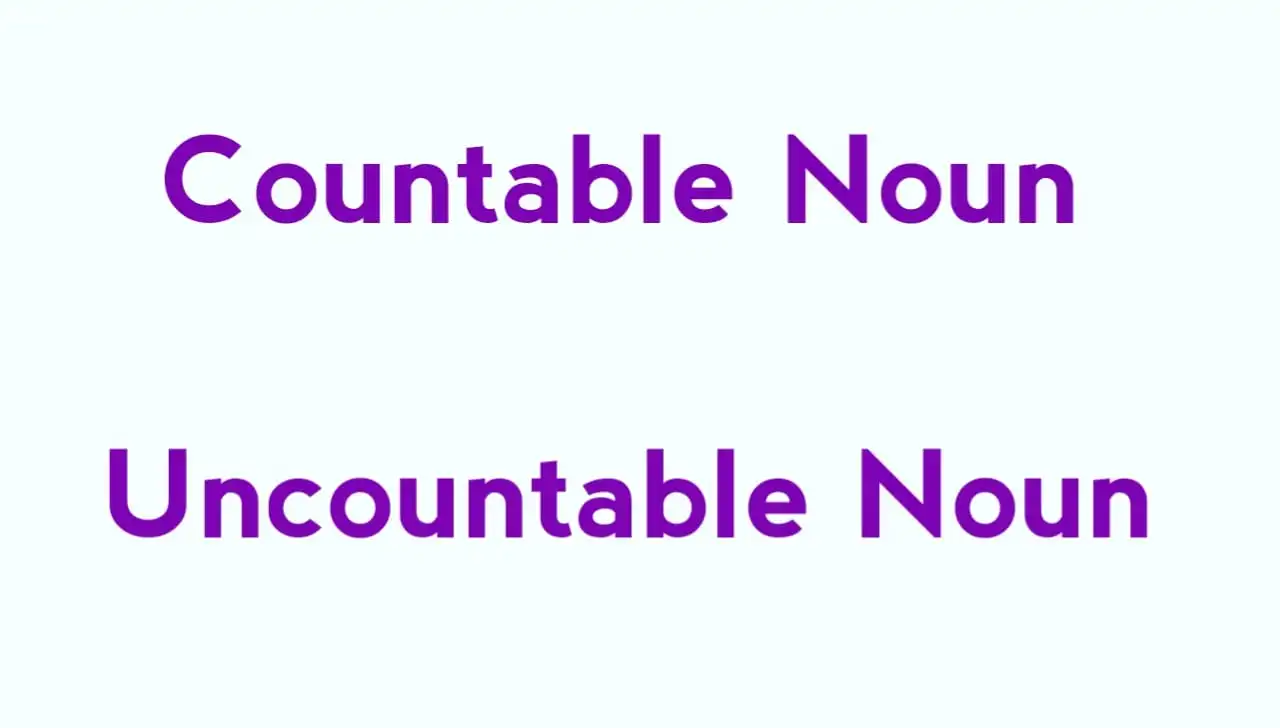Countable and Uncountable Nouns Definition and Examples are given and discussed in the following.
Countable Nouns
There are so many nouns in English. Some of them can be counted, but others can be counted. According to their count, Nouns are generally counted into two categories. – countable nouns and uncountable nouns.
Countable Nouns Definition
Countable Nouns: Countable nouns stand for something that can be counted
- Boy
- men
- tree
- dog
- cat
- house, etc.
Countable Nouns Examples
Countable Nouns include proper nouns, common nouns, and collective nouns. All the examples of countable nouns are given below.
Proper Nouns: Swami Vivekananda, India, Kolkata, Sachin, Virat.
Common Nouns: Man, Book, Tree, Boy, teacher
Collective Nouns: Bundle, Gang, Team, Class, Bunch
Uses of Countable Nouns
(1) Only countable nouns have plural forms.
(2) Countable nouns can be used with the indefinite articles ( a, an ) in the singular :
- a boy,
- an umbrella,
- a tree.
(3) Countable Nouns can be used with many, few, a few, several, etc in the Plural :
- dogs
- few books
- several boys.
Uncountable Nouns
There are some nouns in English that are definitely
Uncountable Nouns Definition
Uncountable Nouns: Uncountable Nouns stand for something that cannot be counted though they can be measured.
- water
- air
- grass
- glass
- wood
- sand, etc.
Uncountable Nouns Examples
Uncountable Nouns include material nouns and abstract nouns. All examples of uncountable nouns are given below.
Material Nouns: Milk, Gold, Water, Honey, Sugar, Sand
Abstract Nouns: Peace, Honesty, Power, Duty, Truth, leisure
Uses of Uncountable Nouns
(1) Uncountable nouns have no Plural form.
(2) uncountable nouns are not used with the indefinite article ( A, An ).
(3) Uncountable nouns are preceded by much, or little, to denote amount or quantity :
- much money,
- Little water.
Nouns used both as countable and uncountable
Some nouns, however, can be both countable and uncountable according to the context in which they are used with a change in their meaning.
(1) Paper (uncountable): The substance on which we write.
(2) A paper (countable): A newspaper a piece of paper.
(3) Wood (uncountable): The table is made of wood.
(4) A wood (countable): The Bungalow is in the middle of a would.
(5) Copper (uncountable) when indicates metal.
(6) A Cooper (countable) when refers to the coin.
(7) Glass (uncountable ) when the material.
(8) A glass (countable) when a tumbler.
Read more about Nouns:







